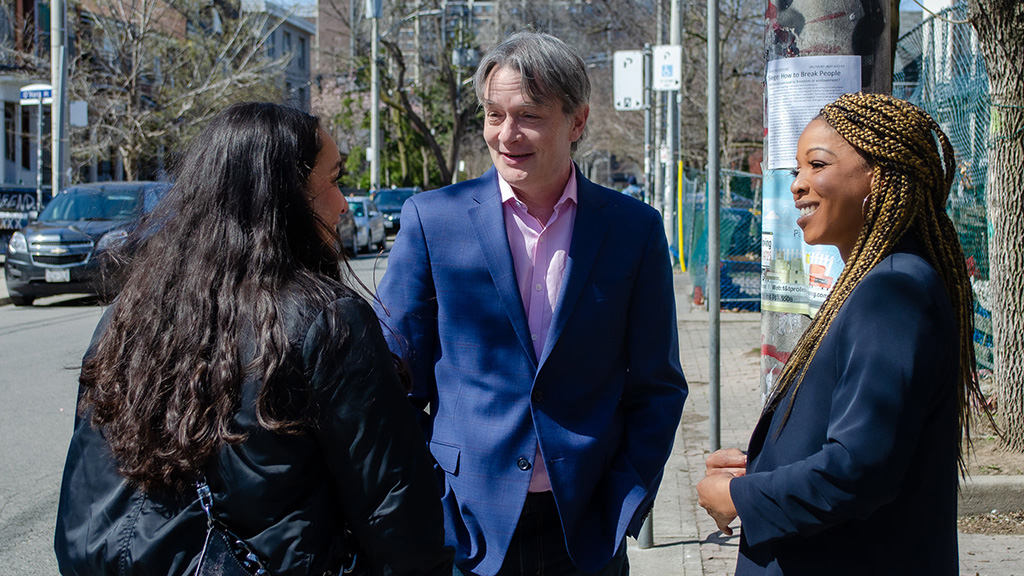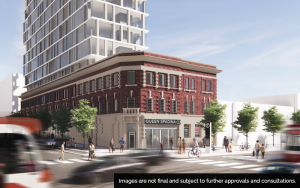The Ontario government’s multiple legislative efforts to get homes built more quickly may well have the opposite effect, says the new chair of Toronto’s planning and housing committee Coun. Gord Perks.
Perks said in an interview that under Bill 23, the More Homes Built Faster Act, and other similar legislation, deadlines for planning decisions come up so quickly that developers are sending applications to the Ontario Land Tribunal whereas under previous rules with longer timelines, developers and city planners tried to work things out.
Also, Perks charges, there has been so much new planning legislation — he could barely name it all, he said, despite having served on the committee for several terms — that planners are spending too much time trying to digest it.
“Premier (Doug) Ford came in and changed all the rules for how development applications get processed,” Perks said.
“They did all this stuff to force municipalities into such incredibly short timelines that, more often than not, if there’s a simple solution in front of us, we won’t find it. Because Premier Ford made the relationship more adversarial. It’s frustrating.”
Perks was appointed to the position Aug. 10 by new Mayor Olivia Chow.
The former planning and housing committee chair, Brad Bradford, was named vice-chair. Chow, a noted collaborator, Perks said, has “got great ideas. And I’m excited to help her implement them.”
Housing was the number one topic of the mayoral byelection campaign, with every leading candidate prescribing solutions. Bradford frequently criticized Chow’s proposals but she has kept him in a prominent position, Perks commented.
“What I think is going to be different for the next three years is, everything used to run out of John Tory’s office,” said Perks.
“Mayor Chow has a very different approach. She has always worked on the principle that many people working together get wonderful things done. And she’s made it very clear that she wants a lot of different voices in this. She wants councillors to really step up and do the work.”
Perks has his own prescriptions for improving the planning and permitting processes, although he suggests the numbers indicate Toronto actually has been building more homes than any other municipality in North America over the past decade. He says there are lots of little things involved in building a city and Toronto has done a lot of those right.
“There are some specific things we need to do better,” said Perks.
Among them: ensure Toronto has adequate planning talent by paying well and creating the right working conditions, which Toronto has started to do, he said; identify staffers such as transportation engineers and technical services employees to ensure there are not bottlenecks at that stage; and continue to streamline non-controversial rezoning requests for projects such as rooming houses and triplexes so that applications are approved as-of-right.
The streamlining is underway but more has to be done, Perks said.
“We’ve cleared a few hurdles.”
Among the key participants in the improvements will be constructors, Perks said.
Perks and Chow will listen to developers and builders; sometimes it’s best to get out of the way and let them do what they do best, he said.
“You don’t build a great city with research reports, there’s actual bricks and mortar involved,” he said.
Perks was first elected to represent Parkdale-High Park in 2006. Prior to that he worked in the environmental movement with Pollution Probe, Greenpeace Canada, the Better Transportation Coalition and the Toronto Environmental Alliance.
“There are three things that a great city has to do. It has to be livable. That’s having good neighbourhood amenities. It has to be sustainable. And that’s not just green building standards, but making sure that people aren’t sitting in traffic with long commutes. It has to be affordable.
“We need to get the third leg of the stool, the affordable piece, right this term.”
Follow the author on Twitter @DonWall_DCN











Recent Comments